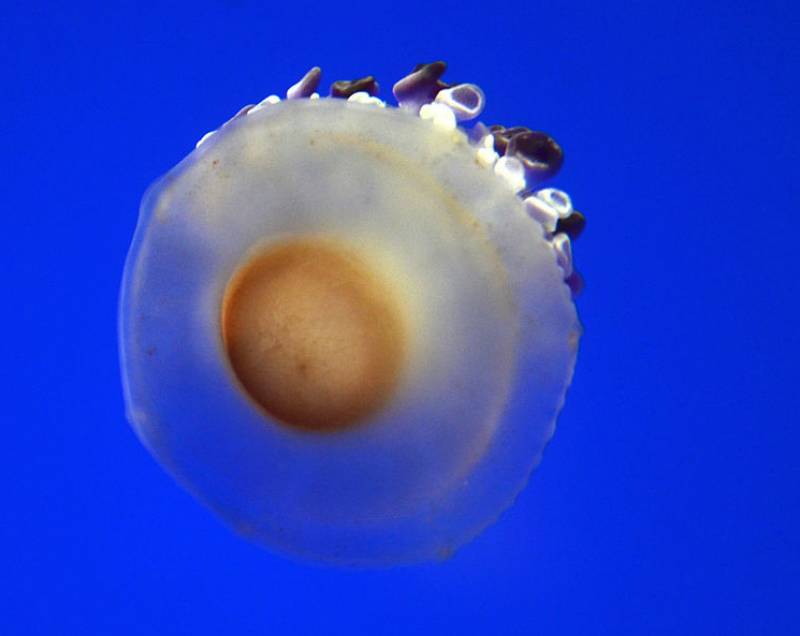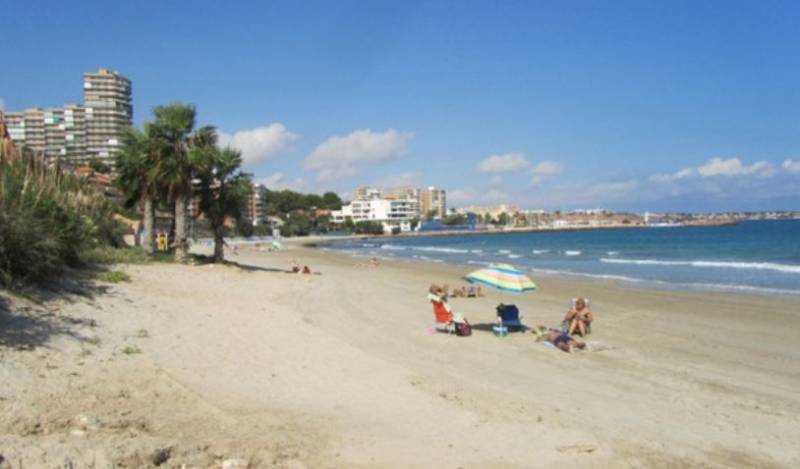- Region
- Vega baja
- Marina Alta
- Marina Baixa
- Alicante
- Baix Vinalopo
- Alto & Mitja Vinalopo
-
ALL TOWNS
- ALICANTE TOWNS
- Albatera
- Alfaz Del Pi
- Alicante City
- Alcoy
- Almoradi
- Benitatxell
- Bigastro
- Benferri
- Benidorm
- Calosa de Segura
- Calpe
- Catral
- Costa Blanca
- Cox
- Daya Vieja
- Denia
- Elche
- Elda
- Granja de Rocamora
- Guardamar del Segura
- Jacarilla
- Los Montesinos
- Orihuela
- Pedreguer
- Pilar de Horadada
- Playa Flamenca
- Quesada
- Rafal
- Redovan
- Rojales
- San Isidro
- Torrevieja
- Comunidad Valenciana
article_detail
Date Published: 16/08/2023
Fried egg jellyfish begin to invade Alicante beaches
The distinctive jellyfish has already been spotted in Denia, Benissa, Calpe and Moraira

The peculiar-looking fried egg jellyfish (Cotylorhiza tuberculata) has begun making an appearance along the Alicante coastline much earlier than usual, most likely due to extremely high sea temperatures and a distinct lack of westerly winds.
Specimens have been spotted up and down the Marina Alta, particularly in Benissa, Calpe, Teulada, Moraira, Xàbia and Dénia.
Usually a frequent visitor to Alicante from September onwards, this large jellyfish is known as the fried egg because of its unique resemblance to an egg yolk, both in colour and in shape. Known to grow up to 20 centimetres in diameter, these animals can easily be identified in the water through their distinctive circle in the middle.
Although their sting isn’t life-threatening and does not usually cause discomfort in areas with thicker skin, such as the palm of the hand or sole of the foot, handling them should still be avoided. This is because the stinging cells can remain on the surface of the skin for some time which can lead to burning if more sensitive areas like the mouth or eyes are touched.
For those who come across this common jellyfish, the Institute of Coastal Ecology recommends beachgoers bury them in dry sand if they can do so without touching. While many swimmers are reluctant to go in the water when jellyfish are present, the Institute has reiterated how important these animals are for Alicante’s marine biodiversity and has asked tourists and locals to respect them while enjoying the beach with caution this summer season.
The Medusapp application, which allows users to report jellyfish sightings, has recorded numerous specimens of the fried egg species along the entire coastline of the Marina Alta in recent days. The authorities in charge of coastal management are closely monitoring the situation.
In other news: Alicante hugger mugger arrested for the fifth time
Image: Vassil via Wikimedia Commons
staff.inc.ali
Loading
See more news about animals in Spain:
OR
Sign up for the Spanish News Today Editors Roundup Weekly Bulletin to get a comprehensive email with all the week’s news for Spain, Murcia, Alicante and Andalucía.
Get a sneak peek – here are a few of our recent Subscription Bulletins:
Discount Special Offer subscription:
36.95€ for 48 Editor’s Weekly News Roundup bulletins!
Please CLICK THE BUTTON to subscribe.
Contact Murcia Today: Editorial 000 000 000 /
Office 000 000 000
































